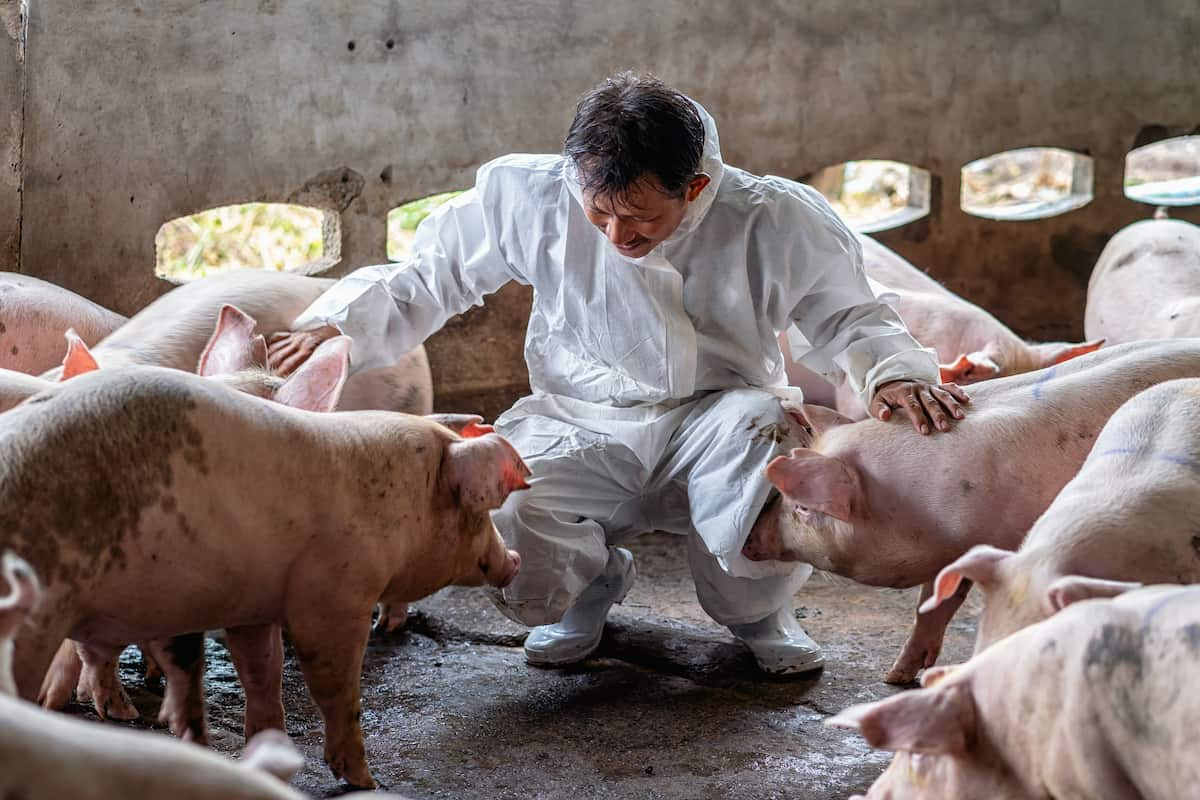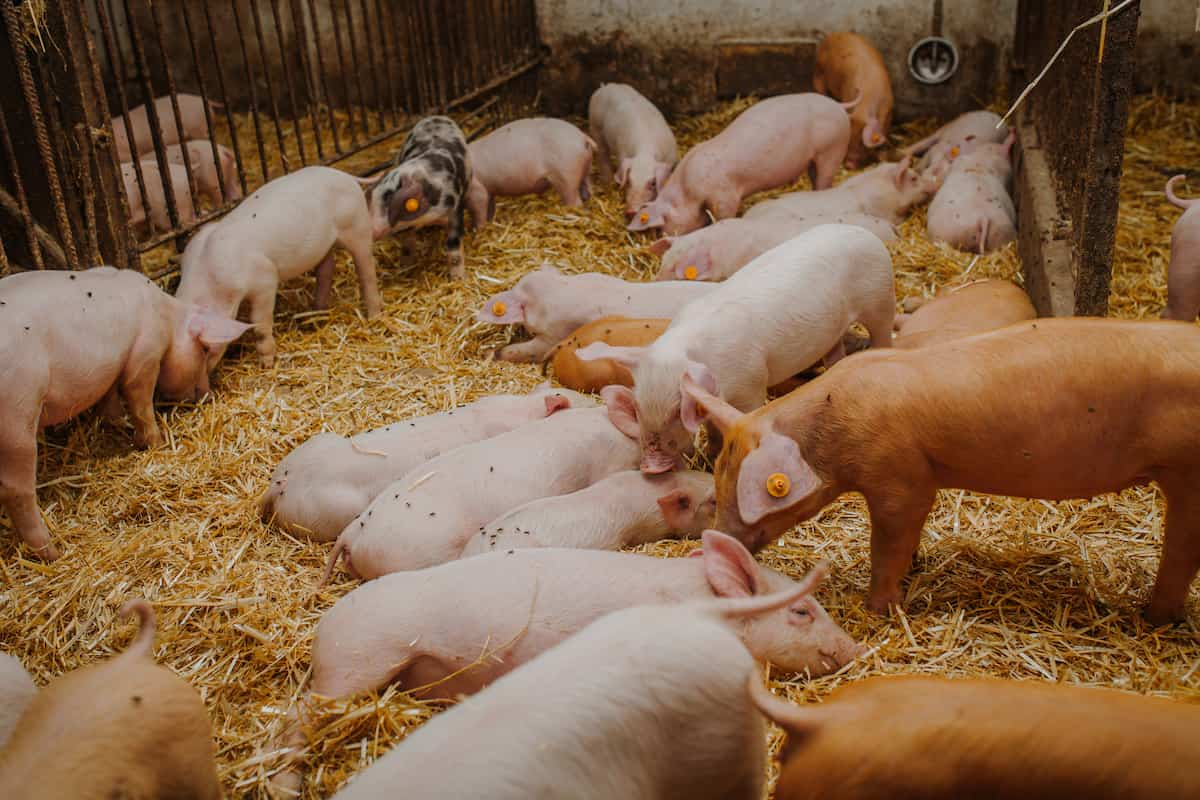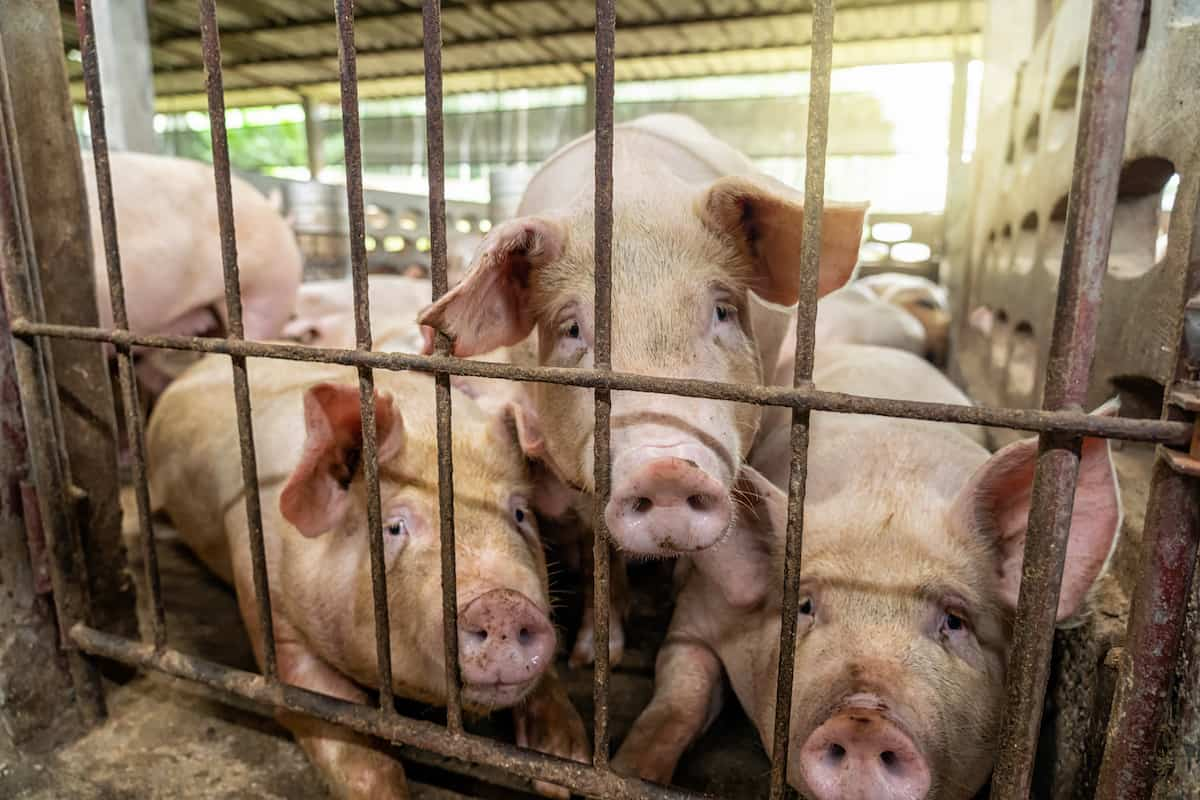Pig farming, also known as hog or swine farming, is a lucrative business venture that has gained popularity in recent years. Illinois, with its suitable climate and agricultural resources, presents an excellent location to start a pig farming business. This comprehensive guide provides a step-by-step process to establish a successful pig farming enterprise for beginners in Illinois, including information on the cost to start and a business plan.

How to Start Pig/Hog/Swine Farming in Illinois
Research and Education
Before diving into the pig farming business, gathering information and educating yourself on the industry, including the local regulations and best practices, is essential. Attend workshops, conferences, and pig farming expos to gain insights and network with other farmers. Consult experienced pig farmers in Illinois and consider joining local agricultural associations for support.
Develop a Business Plan
It is very necessary for the success of your pig farming operation to have a well-structured business strategy. Your objectives, your target market, your budget, and your operational tactics should all be included in the plan. In addition, include a detailed SWOT (Strengths, Weaknesses, Opportunities, and Threats) analysis to assess your potential competition and market conditions. A thorough business plan also helps secure loans or grants, if needed.
Choose a Suitable Location
Selecting an appropriate location is a critical aspect of pig farming. Consider factors such as access to clean water, availability of feed, proximity to the market, and local regulations when choosing a site. Ensure that the area has proper drainage to maintain cleanliness and avoid waterlogging. Additionally, avoid flood-prone areas and consider the neighbors’ concerns when selecting a location.
Determine the Scale of Operation
The scale of operation is determined by factors such as budget, space availability, and market demand. Small-scale pig farming involves raising a few pigs (10-20) for personal consumption or selling to local markets. It requires less investment and is ideal for beginners. Large-scale pig farming involves raising a higher number of pigs (100 or more) for commercial purposes and may require more investment in infrastructure and resources.
Acquire Necessary Permits and Licenses
Ensure that you obtain all the required permits and licenses to start a pig farming business in Illinois. These may include zoning permits, environmental permits, and health certificates. Ask your county extension office or the Illinois Department of Agriculture about documentation.
Construct Housing and Fencing
Pigs require proper housing to protect them from harsh weather conditions and predators. The type of housing depends on the scale of operation and can range from simple pigsties to advanced climate-controlled barns. Ensure that the housing is well-ventilated, easy to clean, and provides ample space for the pigs to move around. In addition, construct secure fencing around the farm to prevent pigs from escaping and to keep predators away.
In case you missed it: Ultimate Guide to Start an Organic Pig Farming at Home

Source High-Quality Breeding Stock
Obtain healthy and high-quality breeding stock from reputable breeders or other pig farmers in Illinois. Choose breeds known for their adaptability, growth rate, and meat quality. Common pig breeds in the United States include Duroc, Hampshire, Yorkshire, and Landrace.
Establish a Feeding and Nutrition Plan
Feed constitutes a significant portion of the cost of pig farming. Develop a cost-effective and nutritious feeding plan that meets the nutritional needs of your pigs at different growth stages. Utilize locally available feed ingredients to reduce costs and consider supplementing with vitamins and minerals for optimal growth. It should include a mix of proteins, carbohydrates, fats, vitamins, and minerals. For protein, sources such as soybean, canola, or fishmeal are ideal. Carbohydrates can be obtained from grains like corn, wheat, or barley.
Fats can be sourced from vegetable oils, while vitamins and minerals can be supplemented through premixes or mineral blocks. Ensure that the feed formulation is adjusted based on the pigs’ age, weight, and growth stage as their nutritional needs change throughout their lives. Additionally, always provide clean, fresh water to maintain proper hydration and support overall health. In addition, provide clean water for the pigs at all times.
Implement Health and Biosecurity Measures
Maintain proper hygiene and sanitation practices on the farm to prevent the spread of diseases. Establish a vaccination schedule and consult a veterinarian for regular health check-ups. Implement strict biosecurity measures, such as limiting visitors, providing footbaths at entry points, and using separate equipment for sick pigs. Train your farm workers on proper handling and care procedures to ensure the overall well-being of the pigs.
Develop a Waste Management Plan
Pig farming generates a significant amount of waste, including manure and wastewater. Develop an effective waste management plan to prevent environmental pollution and comply with local regulations. Consider utilizing manure as a natural crop fertilizer or converting it into biogas to generate energy. Implement proper wastewater treatment systems to minimize the impact on the environment.
Growth and Finishing Management
After the nursery phase, pigs enter the growth and finishing stages. Feed them a healthy, well-rounded diet that allows them to reach their full growth potential. Regularly monitor their growth rate and adjust feed rations accordingly. Implement proper space management in the housing to avoid overcrowding and maintain a clean environment to minimize the risk of diseases.
Marketing and Sales Strategy
Develop a marketing and sales strategy to promote your pig farming business and reach your target customers. This may include direct sales to consumers, selling to local butcher shops and restaurants, or partnering with food processing companies. Emphasize the quality of your products and leverage social media, local fairs, and farmers’ markets to increase brand awareness.
Cost to Start
The cost to start a pig farming business in Illinois varies based on the scale of operation and the infrastructure required. Small-scale pig farming may require an initial investment of $5,000 to $15,000, while large-scale operations may cost upwards of $100,000. Major expenses include land acquisition, housing and fencing construction, breeding stock, feed, and labor. Additional costs may include permits, licenses, and insurance.
In case you missed it: How to Manage Fly Density on Pig Farms: Assessment, and Strategies to Control

Conclusion
Starting a pig farming business in Illinois can be a profitable venture with proper planning, research, and dedication. This step-by-step guide provides you with essential information and insights to establish a successful pig farming enterprise in the state. Consider factors such as location, scale of operation, and market demand when developing your business plan. With careful planning and execution, pig farming in Illinois can become a rewarding and sustainable business.
- Feed Your Flock for Less: Top 10 Tips to Save on Chicken Feed
- Ultimate Guide to Ossabaw Island Hog: Breeding, Raising, Diet, and Care
- Hatching Answers: The Top 10 Reasons Your Chickens Aren’t Laying Eggs
- Eggs and Economics: Breaking Down the Cost of Raising Backyard Chickens
- Defend Your Greens: Proven Methods to Keep Iguanas Out of Your Garden
- Ultimate Guide to Cinnamon Queen Chicken: A Comprehensive Guide for Beginners
- Ultimate Guide to California Tan Chicken: Breeding, Raising, Diet, Egg-Production and Care
- Ultimate Guide to Marsh Daisy Chicken: Breeding, Raising, Diet, and Care
- 10 Types of Chicken Farming Businesses You Can Start for Profits